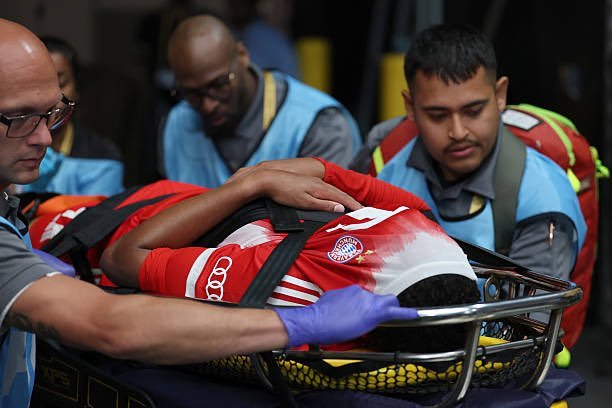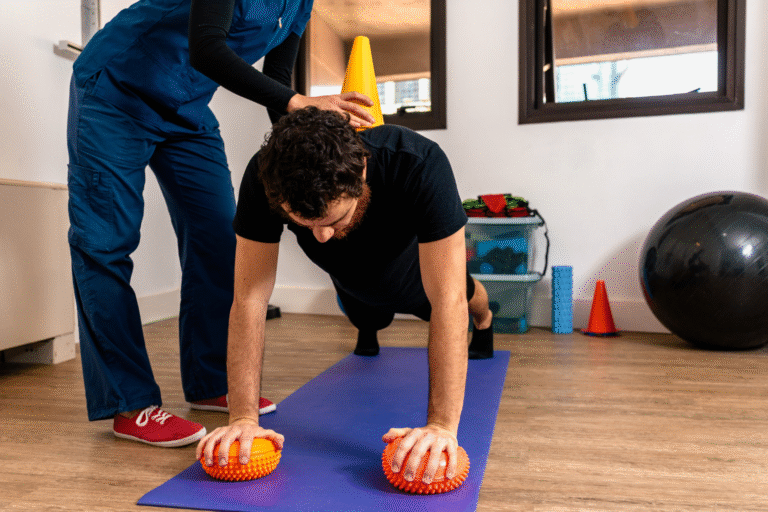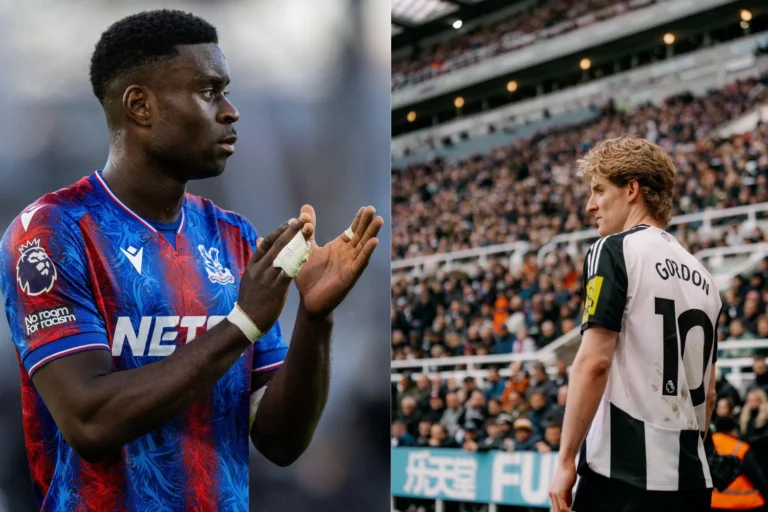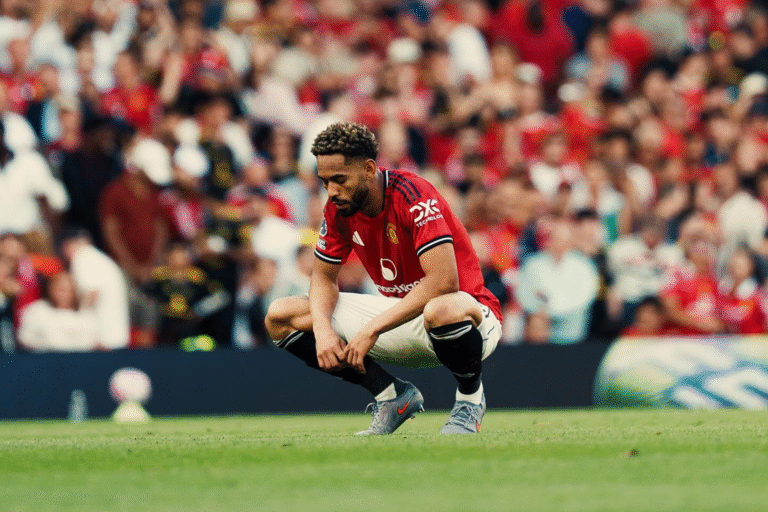
Jamal Musiala Injury: Breaking Down Suspected Fibula Fracture From Impact to Injury
The Incident That Led to Jamal Musiala Injury
During Bayern Munich’s Club World Cup quarter-final against Paris Saint-Germain on 5 July 2025, playmaker Jamal Musiala collided heavily with keeper Gianluigi Donnarumma moments before halftime. Musiala’s left ankle appeared to buckle under Donnarumma’s momentum, and he left the pitch on a stretcher while teammates signalled urgently for medical help. Early reports from Sky’s Kerry Hau and several German outlets point to a distal fibula fracture—the small bone on the outside of the ankle—with insiders fearing he could be sidelined for four to five months. (bavarianfootballworks.com)
How the Damage Occurred
Replay footage shows Musiala planting his foot just as Donnarumma’s body crashes into his lower leg, generating a valgus-external-rotation force. That twisting shear can snap the fibula near the ankle or tear the high-ankle (syndesmosis) ligaments. Because fractures and ligament ruptures often go hand-in-hand, doctors will likely order MRI scans or stress X-rays to judge joint stability before choosing a treatment plan.
Typical Treatment Routes
| Scenario | Likely Treatment | Estimated Lay-off |
|---|---|---|
| Stable fracture / mild sprain | Walking boot, early weight-bearing, physio from week 2 | 10–12 weeks |
| Unstable fracture / syndesmosis tear | Surgical fixation (ORIF), 4–6 weeks non-weight-bearing | 4–5 months |
Return dates depend on bone healing, strength scores, and sport-specific testing; every rehab differs.
A Hekas-Inspired Rehab Roadmap
Phase 1 (Weeks 0–2): Protect & Settle Pain
- Boot or cast, icing 3–4× daily
- Gentle foot pumps/isometrics to limit swelling
- Upper-body ergometer to keep cardio ticking
Phase 2 (Weeks 2–6): Restore Movement
- Start weight-bearing once X-ray shows callus formation
- Band-resisted ankle flexion & hydro-pool sessions
- Hip and core strength work to avoid imbalances
Phase 3 (Weeks 6–12): Build Strength & Balance
- Calf raises, step-ups, wobble-board drills (pain ≤ 2/10)
- Isokinetic testing targeting ≥ 90 % symmetry pre-plyometrics
Phase 4 (Weeks 12–16): Power & Agility
- Hop-and-hold, figure-8 runs, shuttle sprints
- Reactive ball drills to restore game-speed neuromuscular timing
Phase 5: Return-to-Play
- GPS-tracked sprint and decel loads to 95 % of pre-injury baseline
- Non-contact training → controlled contact → medical clearance
Watch Out for Complications
There are certain complications to expect when recovering from sports injuries. Delayed bone healing, irritation from surgical hardware, or residual tib-fib instability can all extend recovery. Regular imaging plus objective strength testing—like force-plate jumps—helps flag issues early, which is why elite clubs rely on them.
What Amateur Athletes Can Learn
You don’t need a Champions League contract to benefit from pro-level rehab principles: get an early diagnosis, load the injury progressively, and stick to a structured physio plan. If you’ve rolled an ankle or suspect a fracture, schedule a sports injury assessment in Manchester with Hekas Sport Therapy. We’ll map out a personalised comeback plan.
Sources
- Bavarian Football Works, Breaking: Jamal Musiala suspected to have fractured his fibula (bavarianfootballworks.com)
- The Guardian, ‘That’s reckless’: Manuel Neuer points finger at Donnarumma after Musiala injury (theguardian.com)
- Goal.com, Musiala suffers horror injury after collision with Donnarumma (goal.com)



